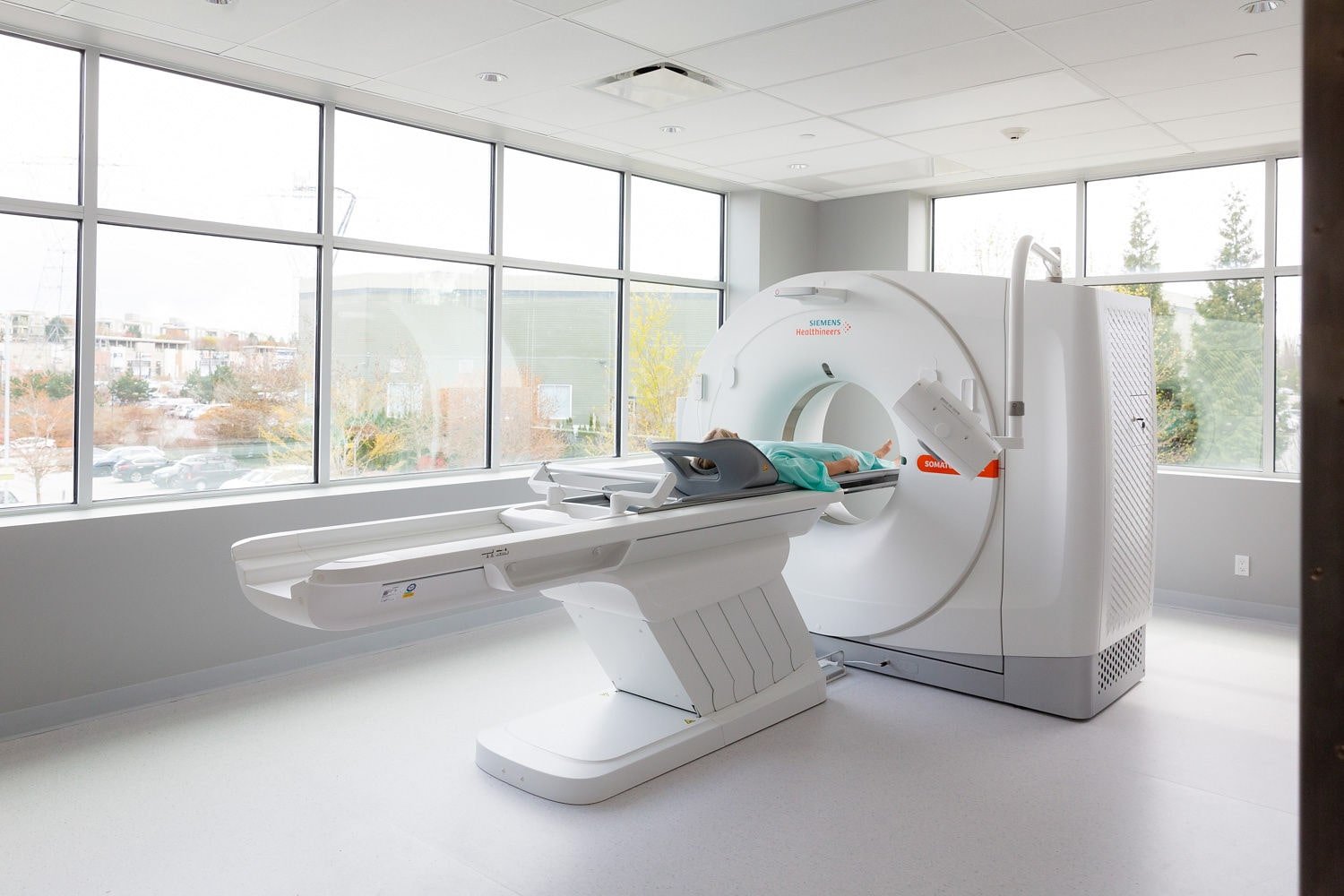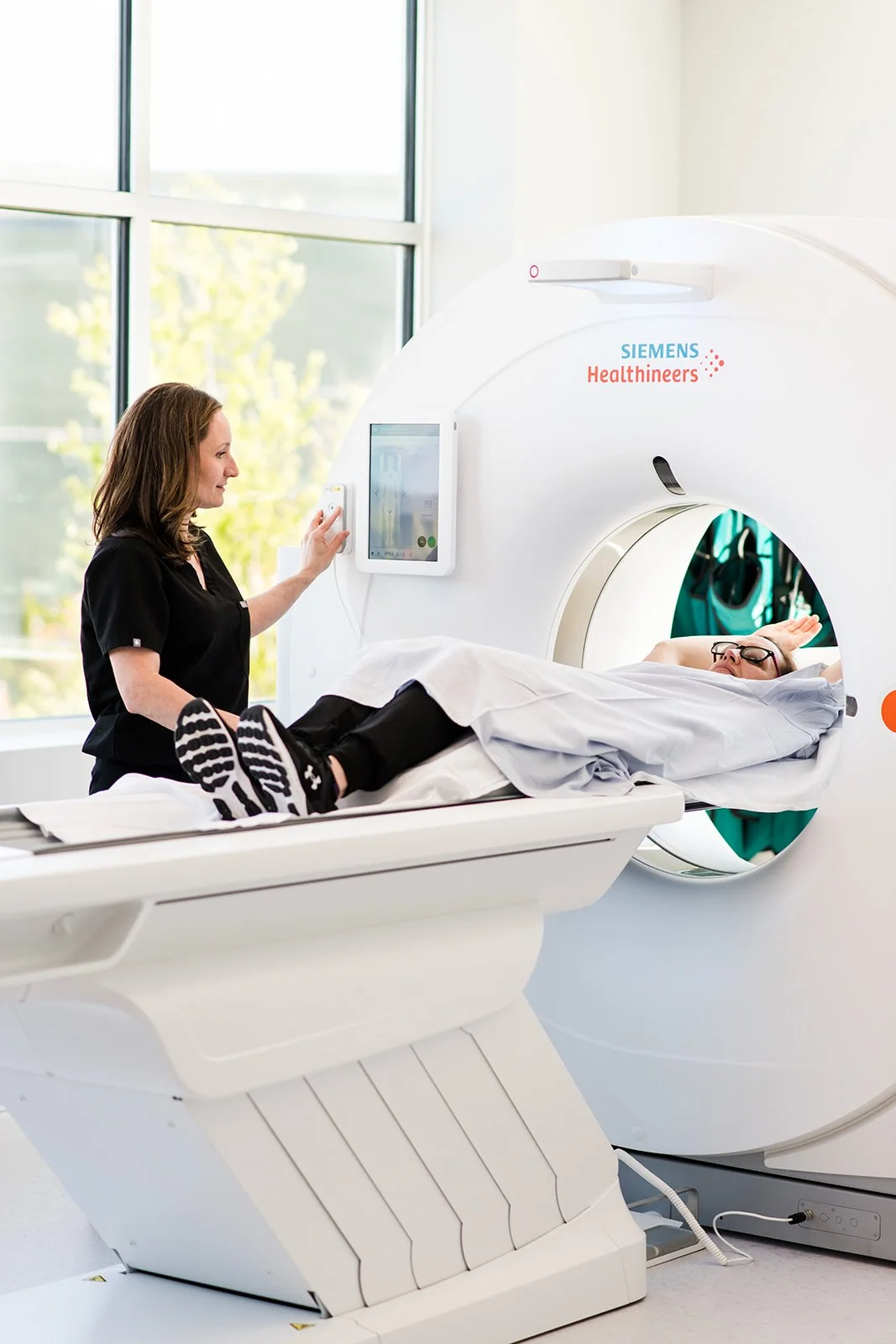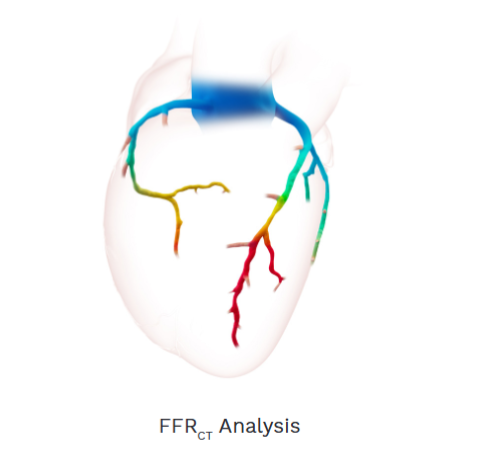
Early Insights. Lifelong Impact
Private, full-service imaging and diagnostics medical clinic in South Surrey, BC.
Cardiac CTA with option for FFRCT by experienced technologists in a bright relaxing room. Advanced Cardiac imaging with a functional analysis.
Cardiac CTA and FFRCT
Elysian Imaging and Diagnostics is advancing the assessment of your heart health with Heart Flow Analysis. Using images
from a non-invasive heart scan, also known as a coronary CTA, this test provides a
personalized 3D model of your coronary arteries that shows how disease may be impacting blood
flow to your heart, as well as identifying the amount, location, and type of plaque present. This
detailed information helps you and your doctor better understand the severity of your disease and
determine the best treatment plan for you.
Why Cardiac CTA and Heart Flow Analysis (FFRct)
● Non-Invasive: Heartflow Analysis is a technology that uses images from your heart
scan, so no invasive tests or anesthesia are needed.
● Accurate: Heartflow Analysis has demonstrated superior accuracy in diagnosing
CAD (7,8). and is clinically proven to align with results from more invasive tests.(9)
● Personalized: Heartflow builds a personalized, 3D model of your arteries, using
images already taken during your heart scan.
● Comprehensive: Heartflow Analysis can go beyond calcium scoring by identifying
higher risk plaques that are most likely to cause a cardiac event.(5)
● Guides Treatment Decisions: Heartflow Analysis identifies how much and what
type of plaque is present in your arteries and measures any blockages that could be limiting
blood flow to your heart, providing information to help guide your personalized treatment
plan.(6,7) This results in 97% of patients getting the correct treatment path with the Cardiac CTA and FFRCT.
How it Works
1. Scan: Your doctor will order a non-invasive Coronary CTA (CCTA) and FFRCT scan of your heart to look
for disease. If the Cardiac CTA finds a narrowing in an artery between 30-90% you will be a candidate for Heartflow. (If you have
no stenosis/ narrowing, you do not need a Heartflow analysis.)
2. Measure: Using your scan, the images undergo advanced AI processing to generate a
personalized, 3D model of your arteries. Your report will measure blood flow and plaque
buildup in your coronary arteries.
3. Act: Your doctor receives a personalized, color-coded 3D model of your coronary arteries
and detailed insights about your heart. With all the information in hand, you and your
provider can make an informed choice on the best treatment pathway for you.5,6

CT Calcium Score and Cardiac CTA
CT Calcium Score $700
A Gated, non contrast scan of the heart (scans in time with heart beat to get clear images free of motion)
Detects Calcium in the arteries, tell us the amount of Calcium and and location within arteries.
Provides an indication of coronary artery disease risk.
Suitable for patients that are not symptomatic, that have Cardiac risk factors such as diabetes.
Cardiac CTA $2200
Non invasive, Cardiac gated scan (patient is connected to ECG leads and the scanner scans when heart is paused between beats, to get images free of motion)
Premedication of beta blocker is taken to lower the Heart rate, The scan is taken while contrast is highlighting the inside of the arteries of the heart to look for narrowing or blockage in the Coronary arteries.
This scan is good for diagnosing coronary artery disease in symptomatic patients.
Patients require a ride to and from the appointment as our Nurse gives medication to alter the Blood pressure and Heart rate.
Patients are monitored by a nurse throughout the exam and after the exam.
FFRCT- $1995
If your Cardiac CTA shows narrowing of 30% or more in an artery, you are a candidate for Heart Flow measurement.
Images for the Cardiac CTA are sent to Heart Flow for analysis
They send 3D image of your heart that shows the blood flow, demonstrating if blood flow is reduced.
Our Radiologists review the data to ensure it is accurate, and provide a report to your physician.
Follow up with your physician to determine the best course of treatment for you moving forward.
* Heart Flow is not able to analyze Cardiac CTA information on patients multiple stents or bypass grafts

Looking for a regular CT Scan?
We offer all regular CT scans that you would get in a hospital
What To Expect.
Calcium Score- This is a quick non contrast image of the heart. You change into a gown, ECG leads are put on the chest. The CT scanner scans in time with the heart beat to get images without motion. This will tell your doctor if there is Calcium (hard plaque) in the arteries and the locations.
Low Radiation dose appropriate for patients with Cardiac Risk factors such as hyperlipidemia, diabetes, but without cardiac sympotoms.
We require a requisition from a doctor to book a CT Calcium score or Cardiac CTA and Heart Flow FFRCT Your doctor can fax the completed requisition to 778-613-2656 or email the requisition to imaging@elysianhealth.ca
Cardiac CTA- This scan is booked on a day with a registered nurse on site. Your ordering doctor will give premedication to lower the heart rate. Upon arrival you are changed the RN takes a thorough medical history, checks vitals and prepares the patient for the exam. The non-invasive gated (scans in time with the heartbeat via ECG connected to the scanner to ensure clear pictures without motion) This scan has a calcium score first, then contrast is injected through a peripheral IV. Scans of the heart are taken while contrast is highlighting the inside of the artery to assess for narrowing of the arteries. During the exam Nitroglycerine is given by the RN to open the arteries to help enlarge the small coronary arteries for better visualization. The total exam time including preparation can be one to 3 hours depending on the heart rate and if more medication is needed. The Cardiac Trained Radiologists provide a detailed report of the heart and arteries. This will look for narrowing caused by soft plaque and hard plaque.
Citations: Articles for further insight into Cardiac CTA and Heart Flow
5. Williams MC, et al. Circulation. 2020. doi: 10.1161 CIRCULATIONAHA.119.044720
https://www.ahajournals.org/doi/10.1161/CIRCULATIONAHA.119.044720
6. Rinehart S, et al. JSCAI. 2024. doi: 10.1016/j.jscai.2024.101296
https://www.jscai.org/article/S2772-9303(24)00003-6/fulltext
7. Douglas PS, et al. The PRECISE Randomized Clinical Trial.
https://jamanetwork.com/journals/jamacardiology/fullarticle/2808765
8. Driessen, et al. J Am Coll Cardiol 2019
https://www.jacc.org/doi/10.1016/j.jacc.2018.10.056
9. Narula J, et al. Eur Heart J. 2024.
https://academic.oup.com/ehjcimaging/article/25/9/1287/7663685
.






